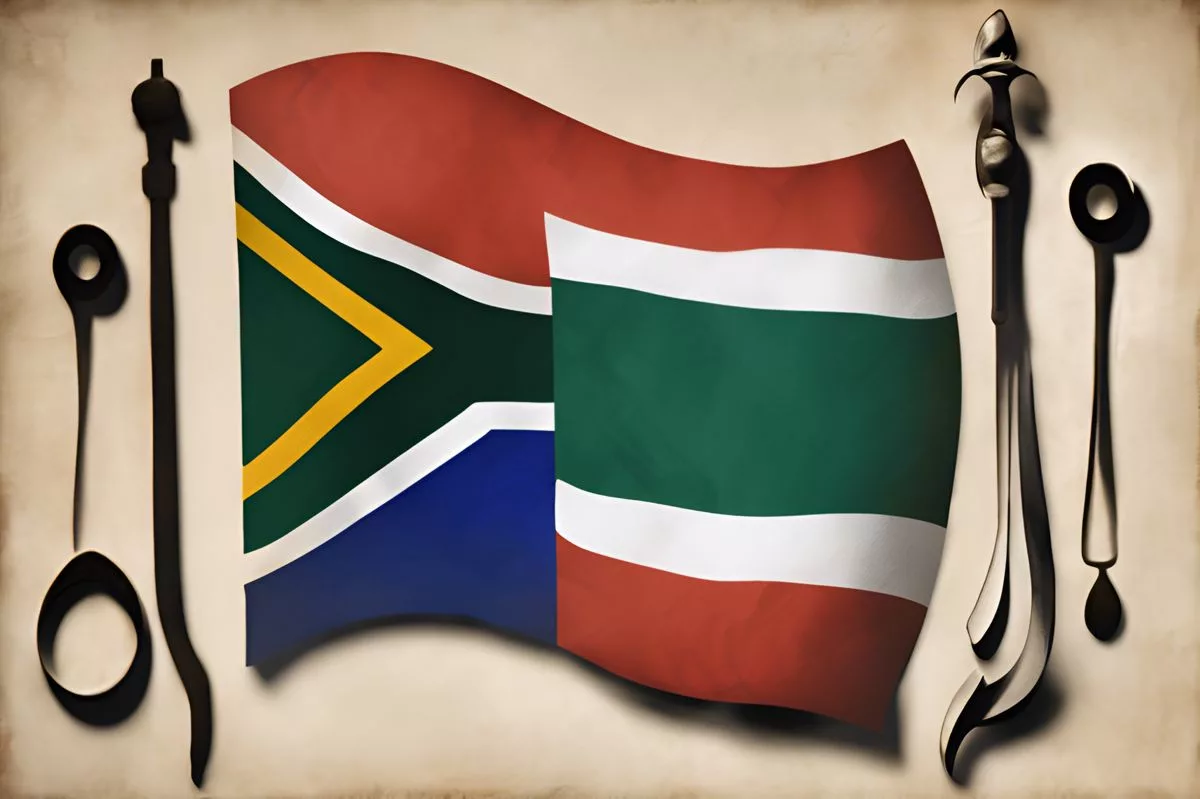The Migration Conference in South Africa brought together leaders from various sectors to discuss the role of migration in shaping development. Minister Ramokgopa emphasized the importance of a unified approach and well-defined pathways for migrants. South Africa’s multicultural identity owes its origins to various migrations, but policies must be carefully managed to avoid negative consequences for vulnerable groups. The conference highlighted the South African value of Ubuntu, symbolizing humanity and respect for human rights, as a foundation for policies and legislation.
What is the role of migration in shaping development from a South African perspective?
Migration has played a significant role in shaping South Africa’s social and cultural landscape. Successful migration policies require a coordinated effort across multiple sectors, with a united endeavor from various government departments, business communities, organizations, and society at large. When managed correctly, migration can have a beneficial impact on both the host country and the countries of origin.
Inauguration of the Migration Conference
In August 2024, a significant gathering comprising distinguished guests, media representatives, and prominent personalities convened, eagerly awaiting the commencement of the event. The reason for this assembly was the National Planning Commission (NPC) and International Organization for Migration (IOM) Migration Conference. Ms. Maropene Ramokgopa, the Minister in The Presidency for Planning, Monitoring, and Evaluation, took center stage as the keynote speaker.
As the event kicked off at precisely 9:30 AM, Minister Ramokgopa took to the stage to begin her address. The air was brimming with promise—four days dedicated to insightful and fruitful discussions on the multifaceted issue of migration. In her opening remarks, she emphasized the importance of a unified approach towards tackling migration issues, promoting the principles of teamwork and mutual gain.
Recent years have seen an uptick in media coverage of migration matters, both within South Africa and globally, reflecting its crucial role in the current world scenario. Although often negatively depicted, it provides a distinctive viewpoint to comprehend our global situation. According to the Minister, these narratives are crucial for future policy-making, given the enduring nature of migration.
Historical Context of Migration in South Africa
To understand South Africa’s perspective on migration, one needs to explore its historical context. South Africa is a colorful amalgamation of various languages, cultural traditions, and religions. This diversity owes its origins to the migrations from the North that have shaped the indigenous population’s plurality. The colonial era further added to this mix, bringing European settlers who, alongside enslaved individuals from Africa and the Far East, contributed to South Africa’s multicultural identity.
These varied strata of migration have fundamentally shaped South Africa’s social and cultural landscape. However, as the Minister reminded the audience, migration is not a novel phenomenon. The present global clamor and adverse targeting of migrants likely have roots in other societal challenges.
When managed correctly, migration can have a beneficial impact on both the host country and the countries of origin. The Minister emphasized the importance of establishing well-defined pathways for migrants, based on the need for their formal documentation. This step would allow the government to accurately keep track of the migrant population and their contributions to the country.
Policy-making and the Impact of Migration
Successful migration policies require a coordinated effort across multiple sectors. This approach calls for a united endeavor from various government departments, business communities, organizations, and society at large. Such a strategy is essential to navigate the complexities of migration and guarantee the efficiency, fairness, and humanity of the systems in place.
Internal migration in South Africa, particularly towards economic hubs, is a rising concern, given the existing strain on resources and infrastructure. The Minister highlighted the need to address the lingering effects of apartheid spatial planning as a means to tackle this issue.
The repercussions of ill-conceived migration policies on vulnerable groups is a matter of grave concern. Studies indicate that children, women, the elderly, and people living with disabilities often bear the negative consequences of poorly implemented policies. The Minister underlined the need for immediate attention to these issues.
Given these complexities, stakeholders must constantly strive to refine their migration policies. Exchange of best practices and cooperation can help cultivate a comprehensive strategy that caters to the needs of migrants and the wider community.
Concluding Remarks
In her concluding remarks, the Minister drew attention to the inherent South African value of Ubuntu, symbolizing humanity and respect for human rights. She inspired the audience to incorporate humanity into their solutions, embodying the spirit of Ubuntu, the foundation of all South African policies and legislation.
The Minister’s inaugural address encapsulates South Africa’s unique standpoint on migration. It sets the stage for the upcoming conference, foreshadowing four days full of engaging conversations and reciprocal learning. As delegates gear up to navigate the complexities of migration, they carry with them the reminder of the humanity underlying their mission. The reminder, “I am what I am because we all are,” resonates in their minds, underscoring their shared responsibility and the power of unity in diversity.
What was the purpose of the Migration Conference in South Africa?
The Migration Conference in South Africa brought together leaders from various sectors to discuss the role of migration in shaping development. The conference aimed to promote a unified approach towards tackling migration issues, promoting the principles of teamwork and mutual gain.
What is the historical context of migration in South Africa?
South Africa is a colorful amalgamation of various languages, cultural traditions, and religions. This diversity owes its origins to the migrations from the North that have shaped the indigenous population’s plurality. The colonial era further added to this mix, bringing European settlers who, alongside enslaved individuals from Africa and the Far East, contributed to South Africa’s multicultural identity.
What is the impact of migration on policy-making in South Africa?
Successful migration policies require a coordinated effort across multiple sectors. This approach calls for a united endeavor from various government departments, business communities, organizations, and society at large. Such a strategy is essential to navigate the complexities of migration and guarantee the efficiency, fairness, and humanity of the systems in place.
What are the consequences of poorly implemented migration policies in South Africa?
The repercussions of ill-conceived migration policies on vulnerable groups is a matter of grave concern. Studies indicate that children, women, the elderly, and people living with disabilities often bear the negative consequences of poorly implemented policies. The Minister underlined the need for immediate attention to these issues.
What is the South African value of Ubuntu, and how is it relevant to migration policies?
Ubuntu is a South African value symbolizing humanity and respect for human rights. It is the foundation of South African policies and legislation, and the Minister inspired the audience to incorporate humanity into their solutions, embodying the spirit of Ubuntu.
What was the Minister’s message in her opening and concluding remarks at the conference?
In her opening and concluding remarks, the Minister emphasized the importance of a unified approach towards tackling migration issues, promoting the principles of teamwork and mutual gain. She also drew attention to the inherent South African value of Ubuntu, symbolizing humanity and respect for human rights, inspiring the audience to incorporate humanity into their solutions.












